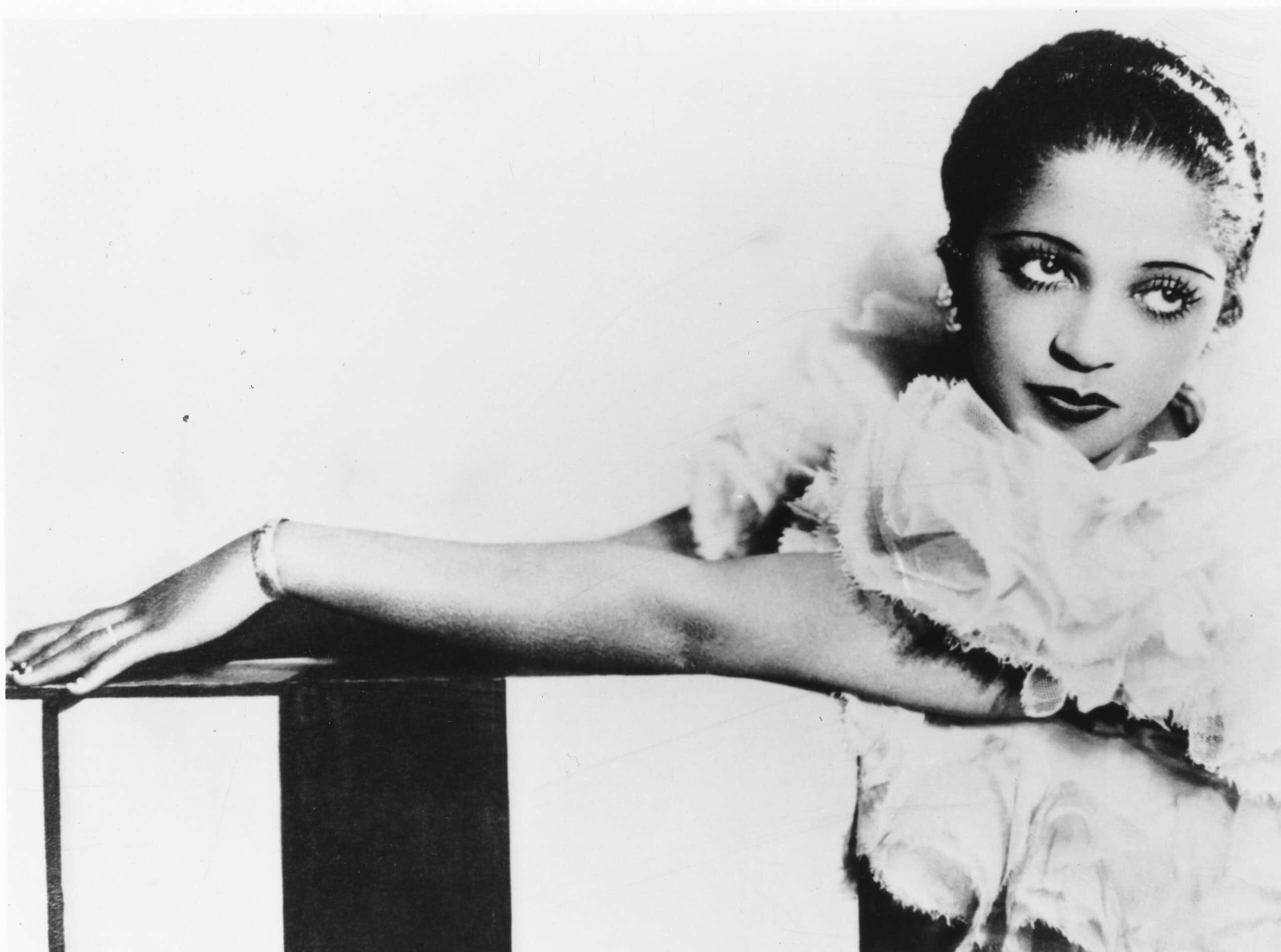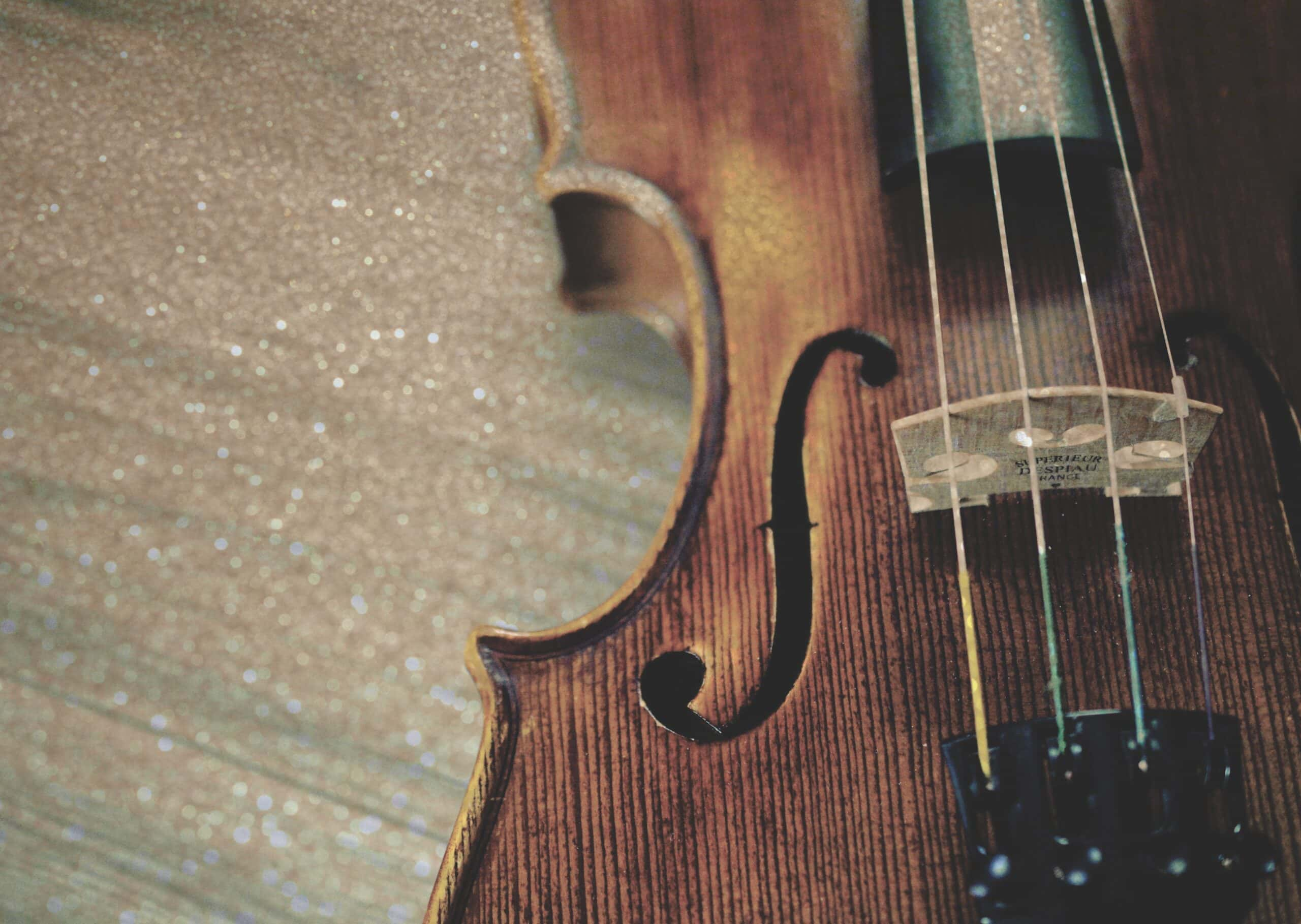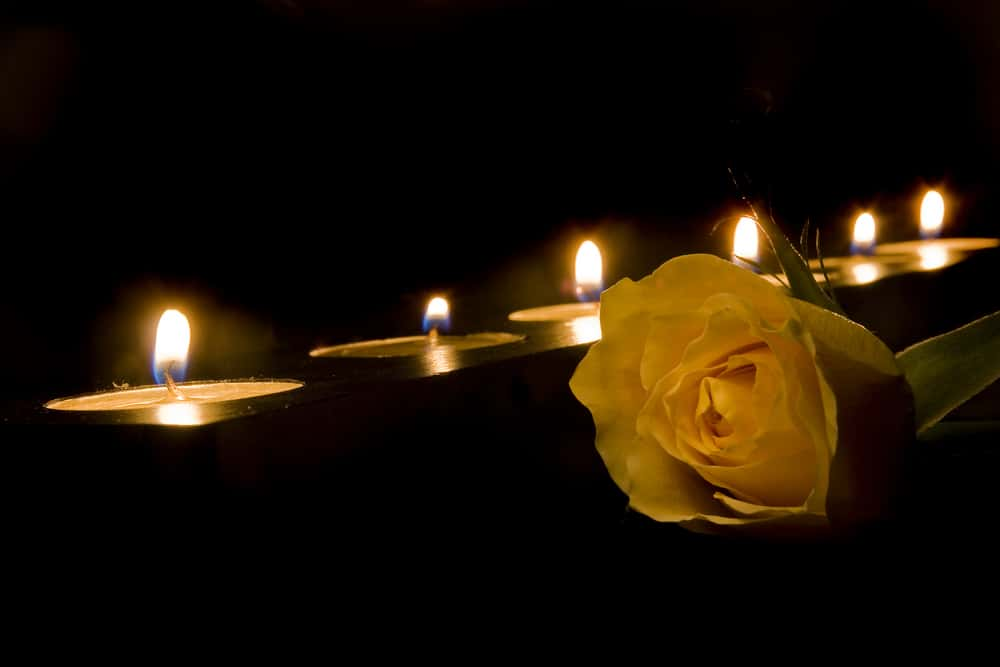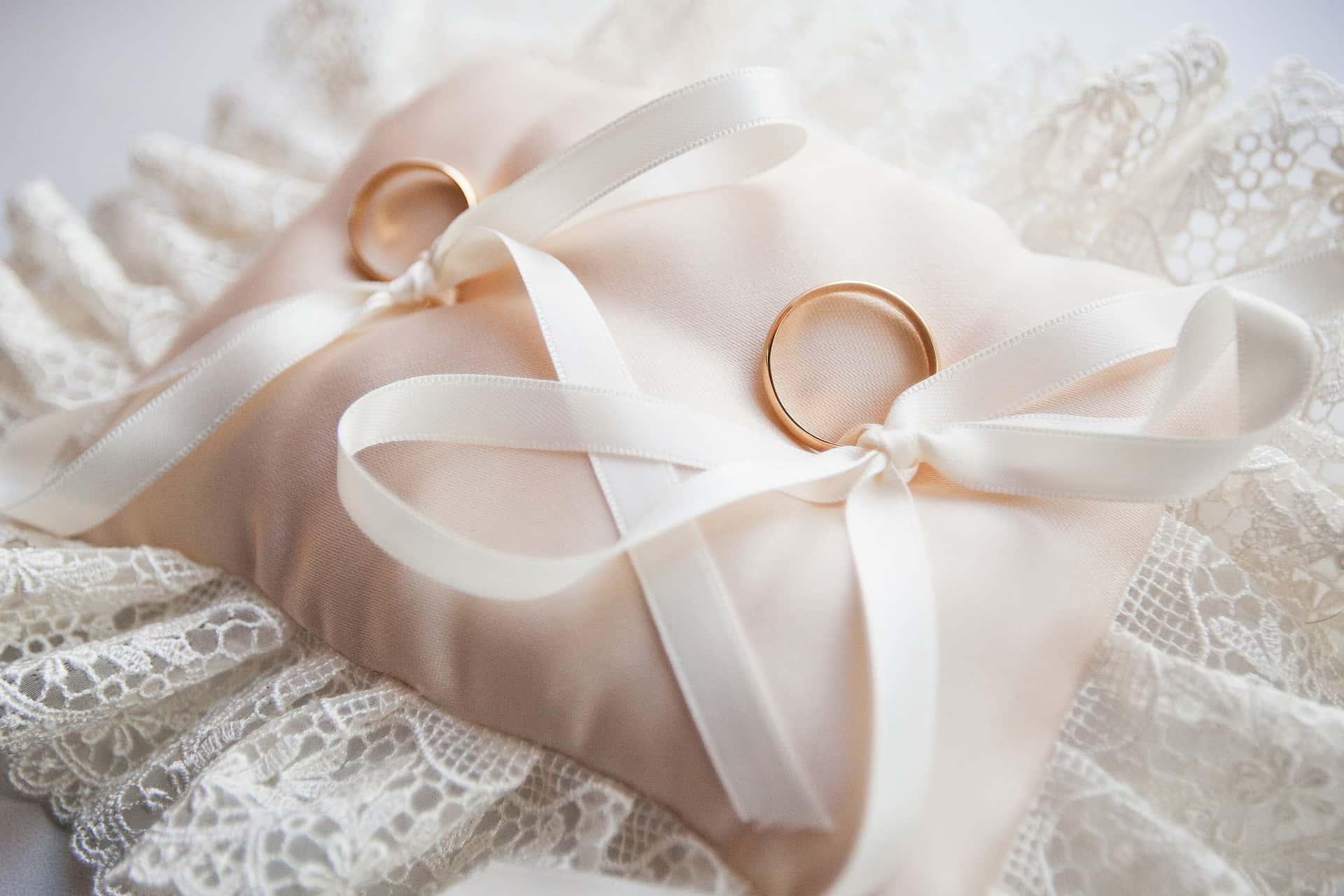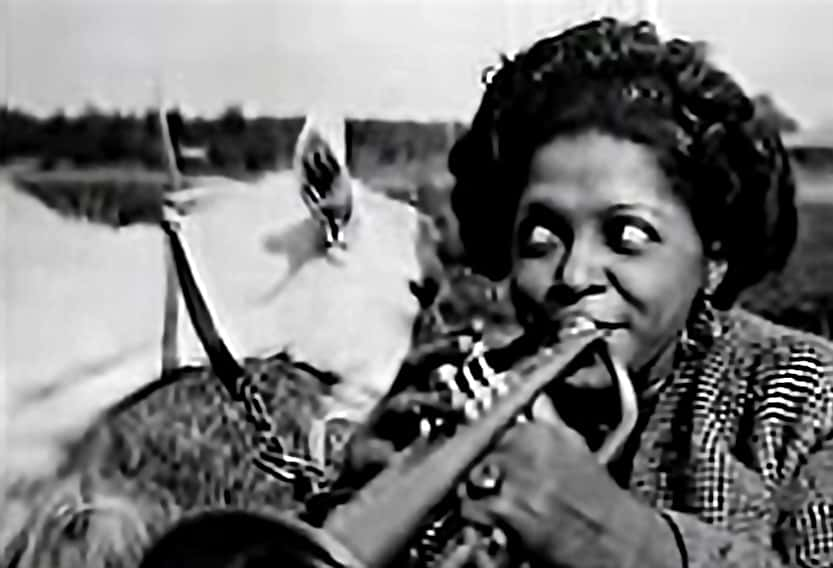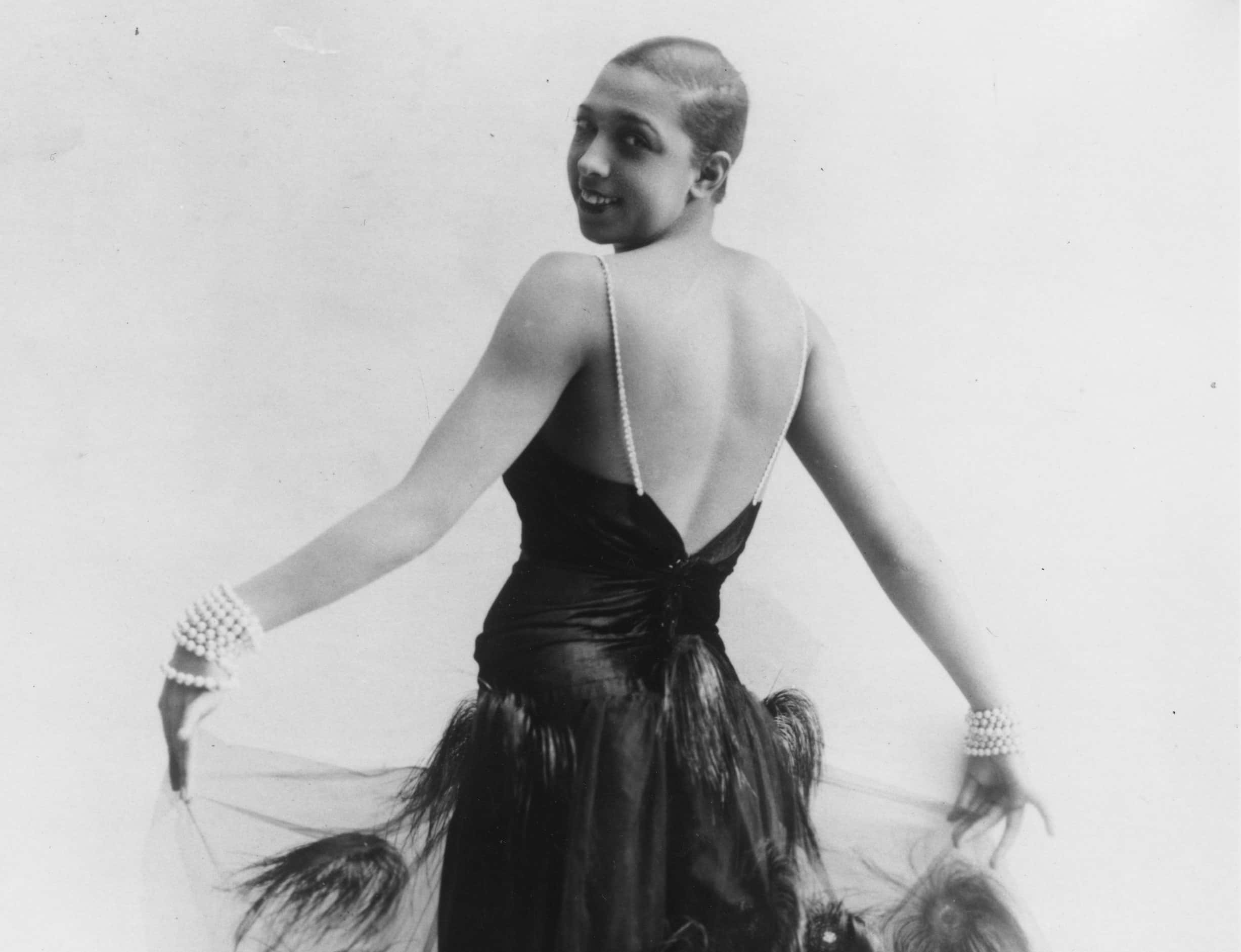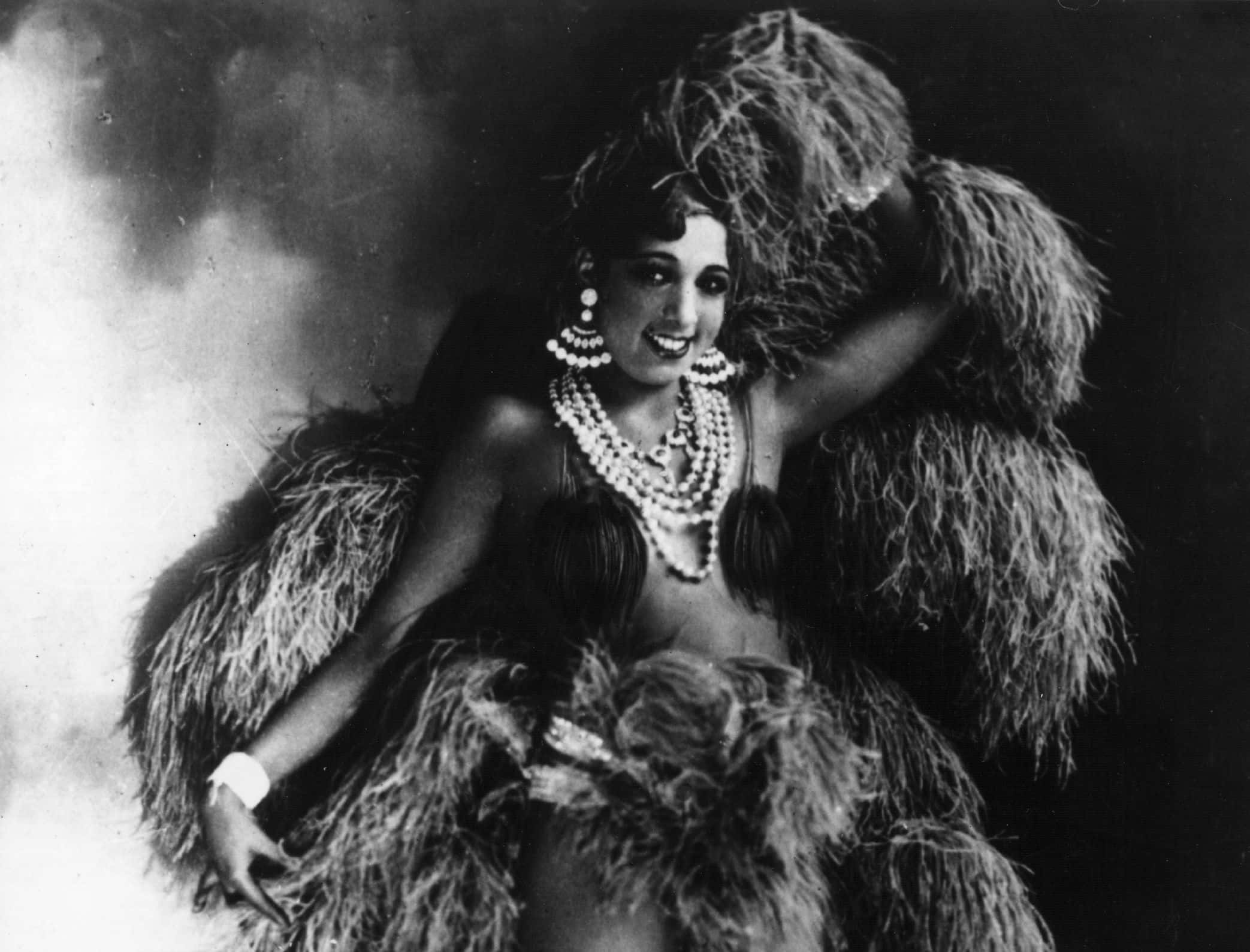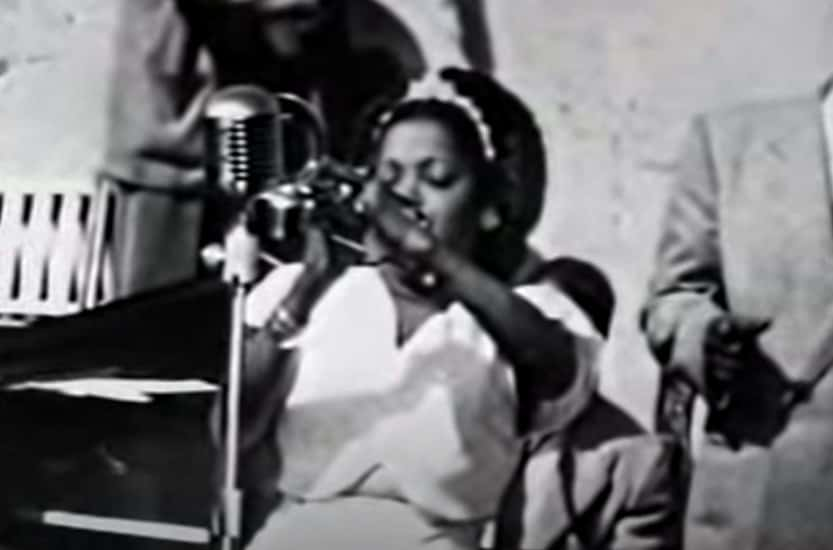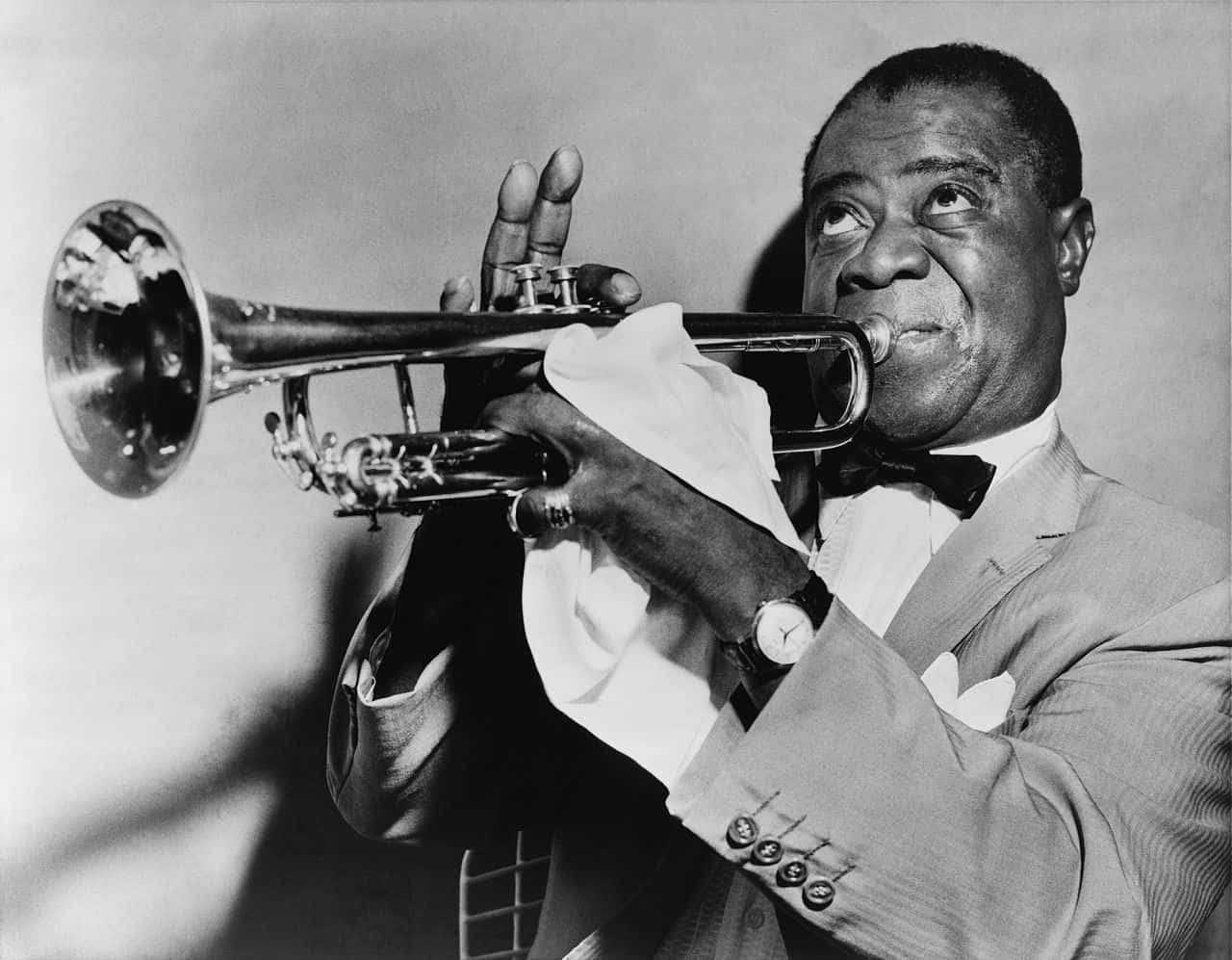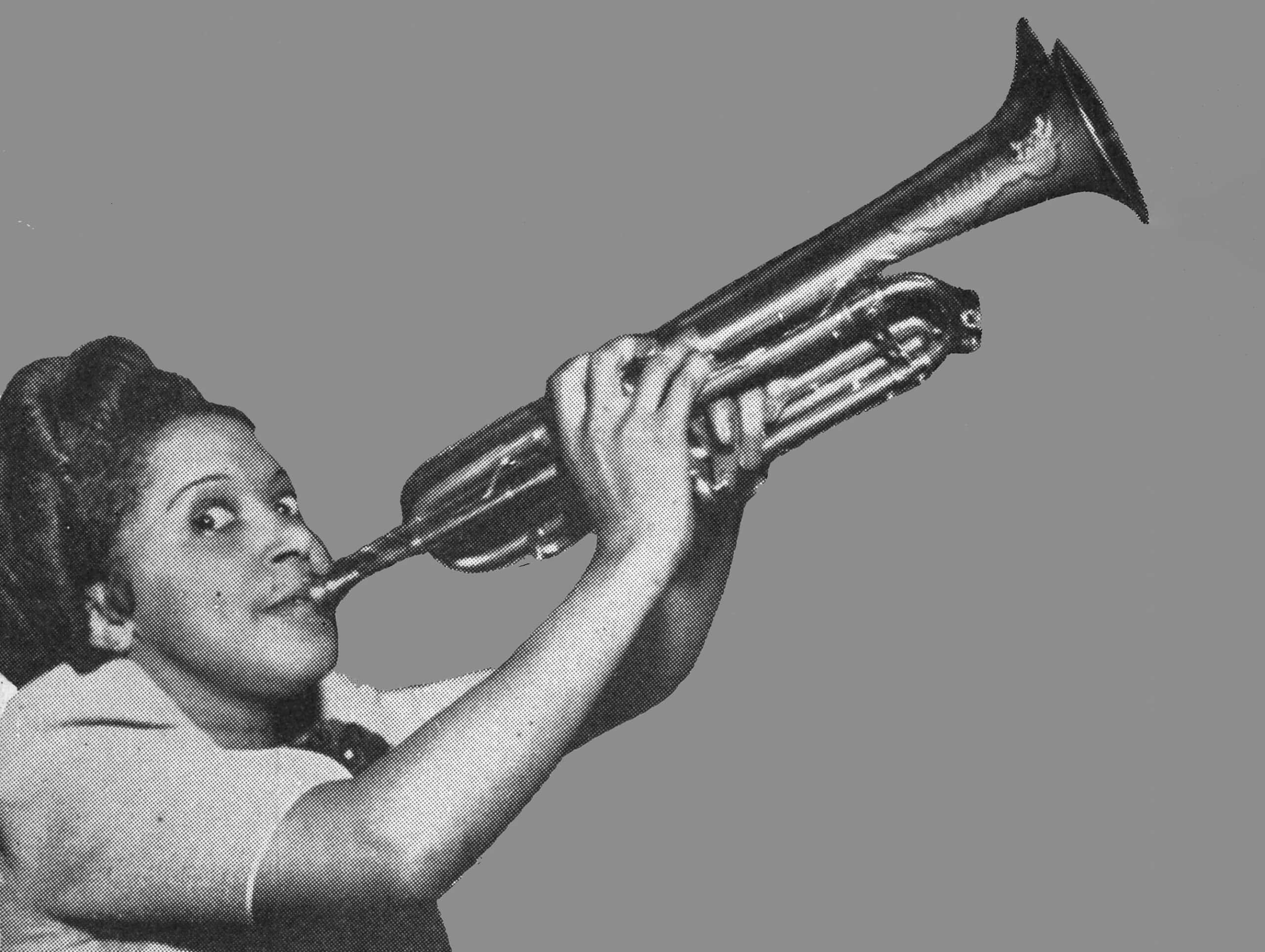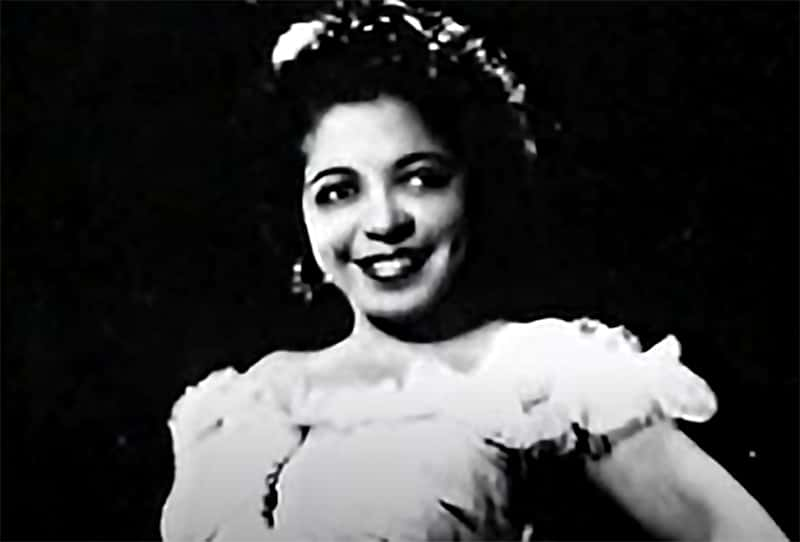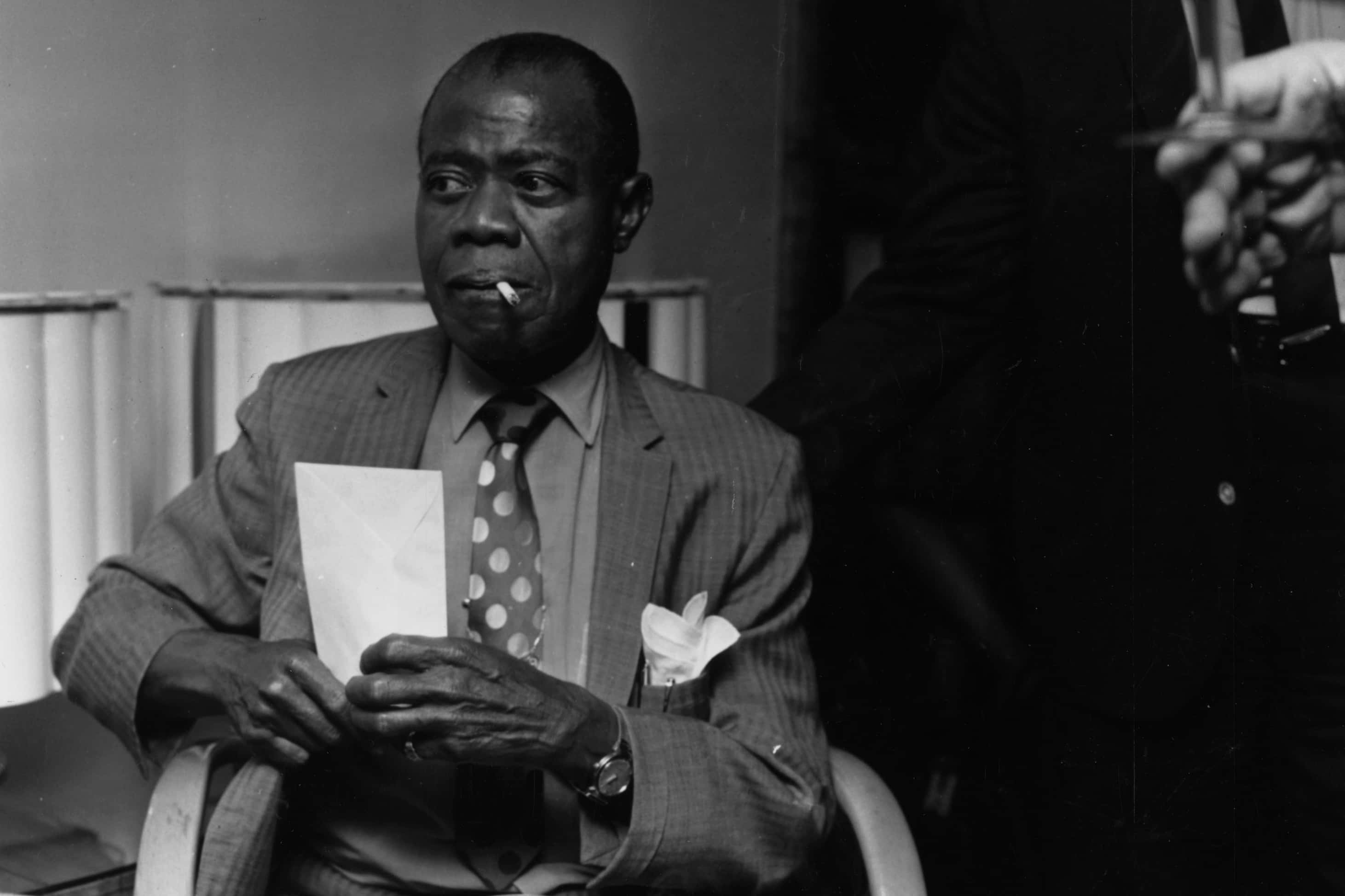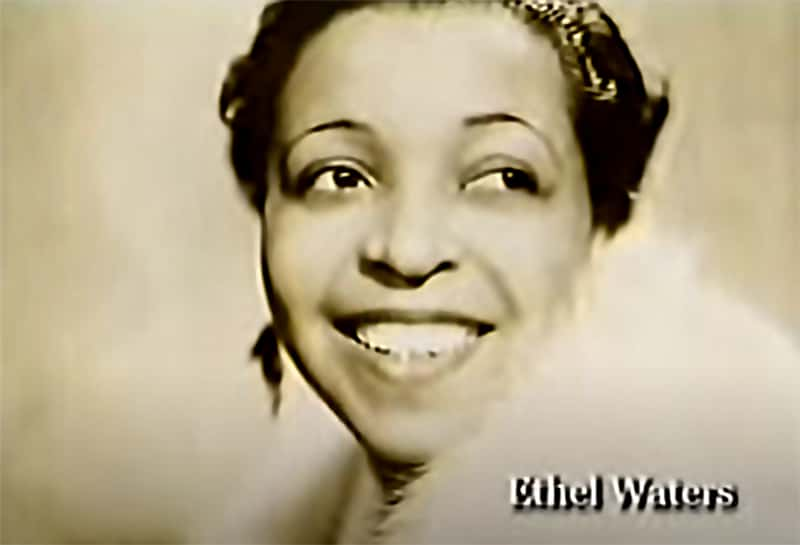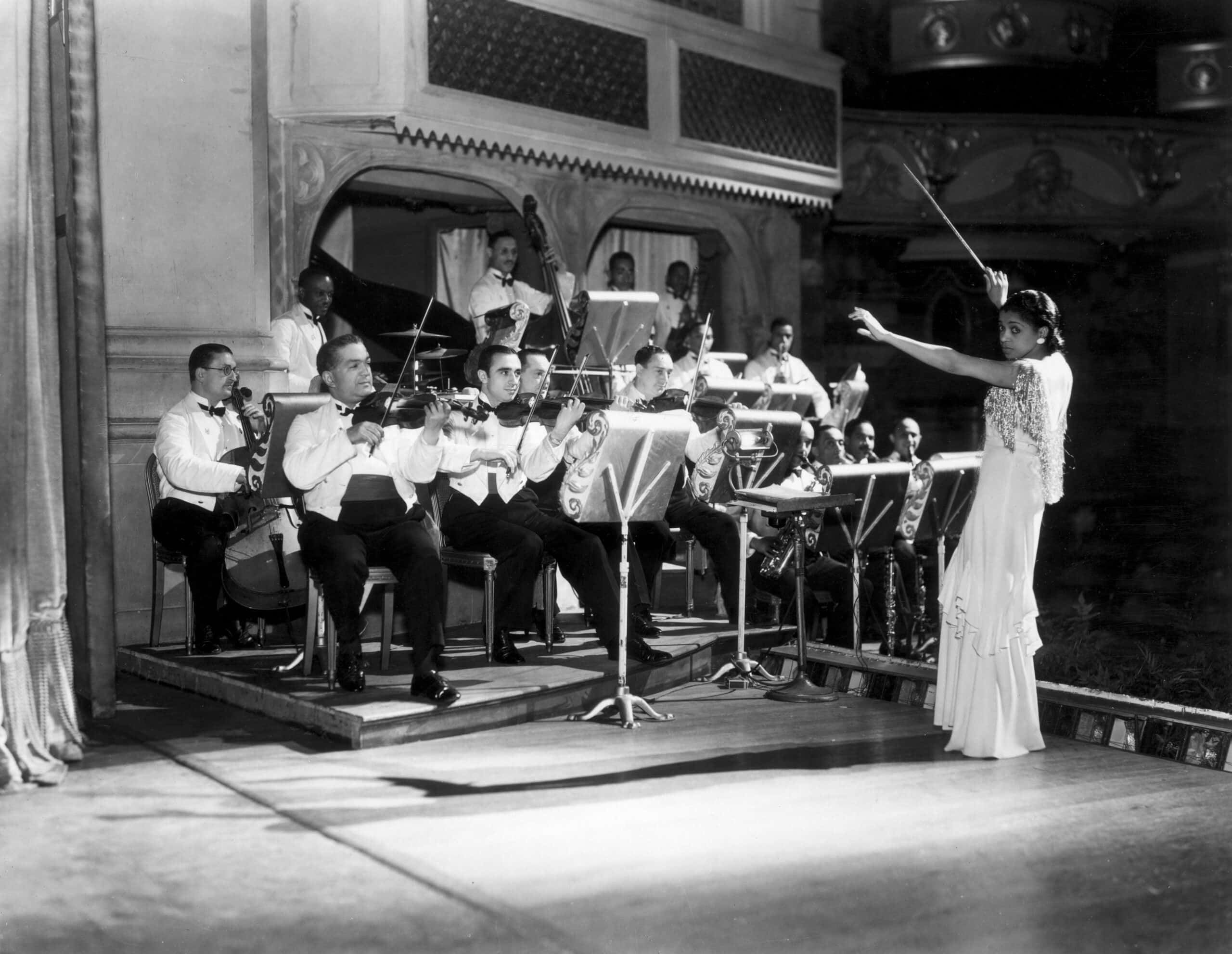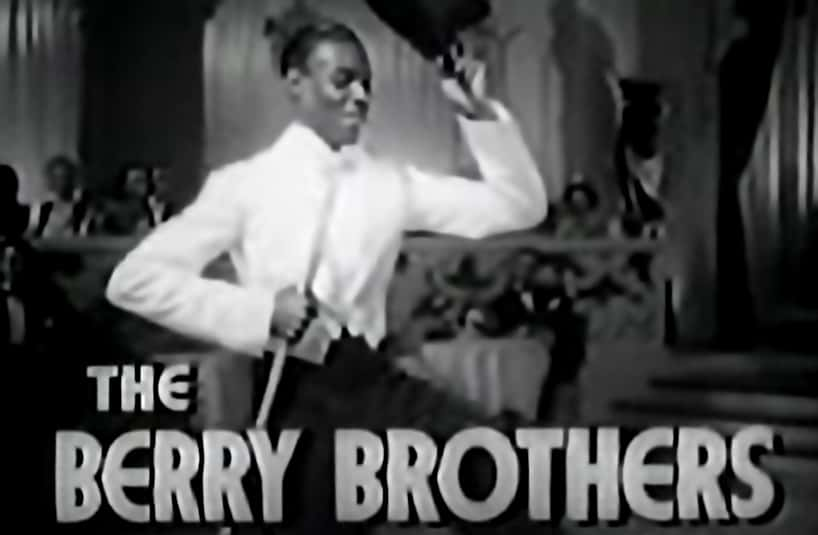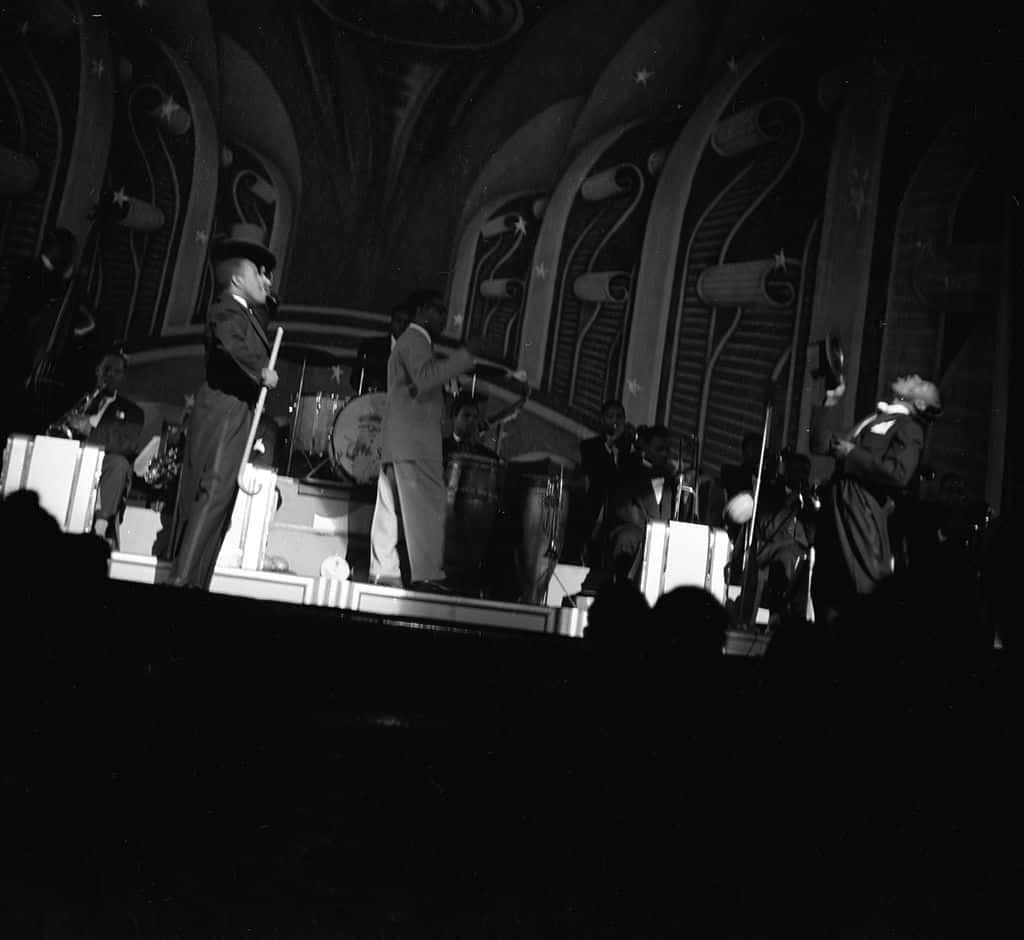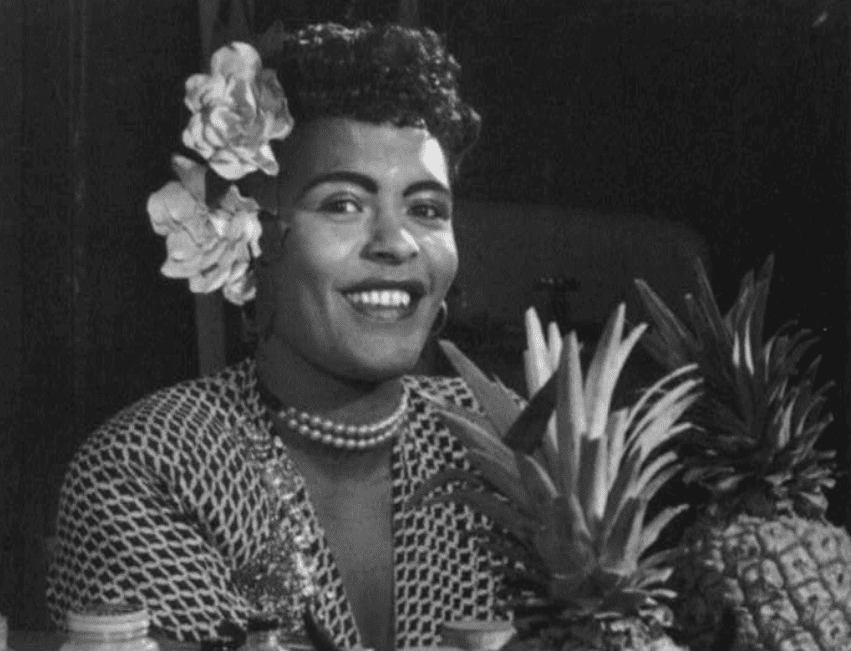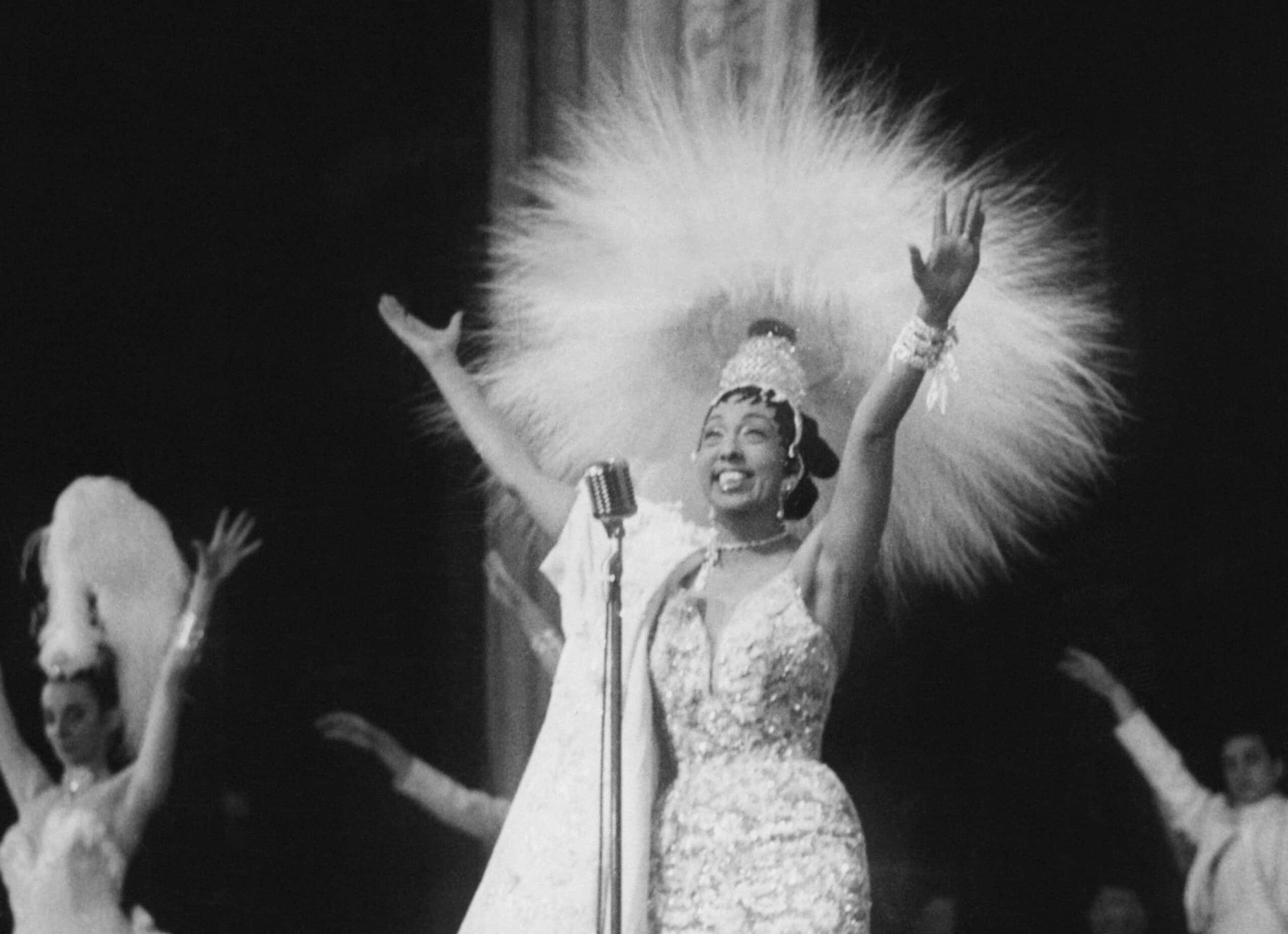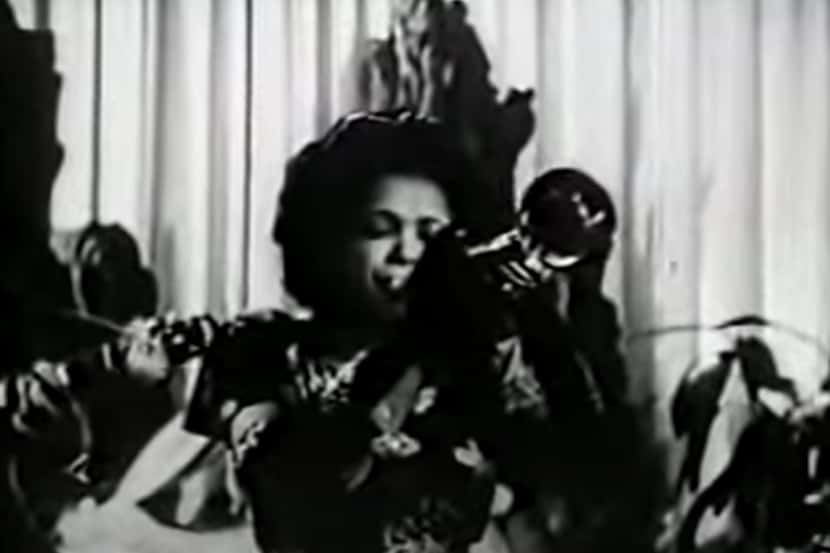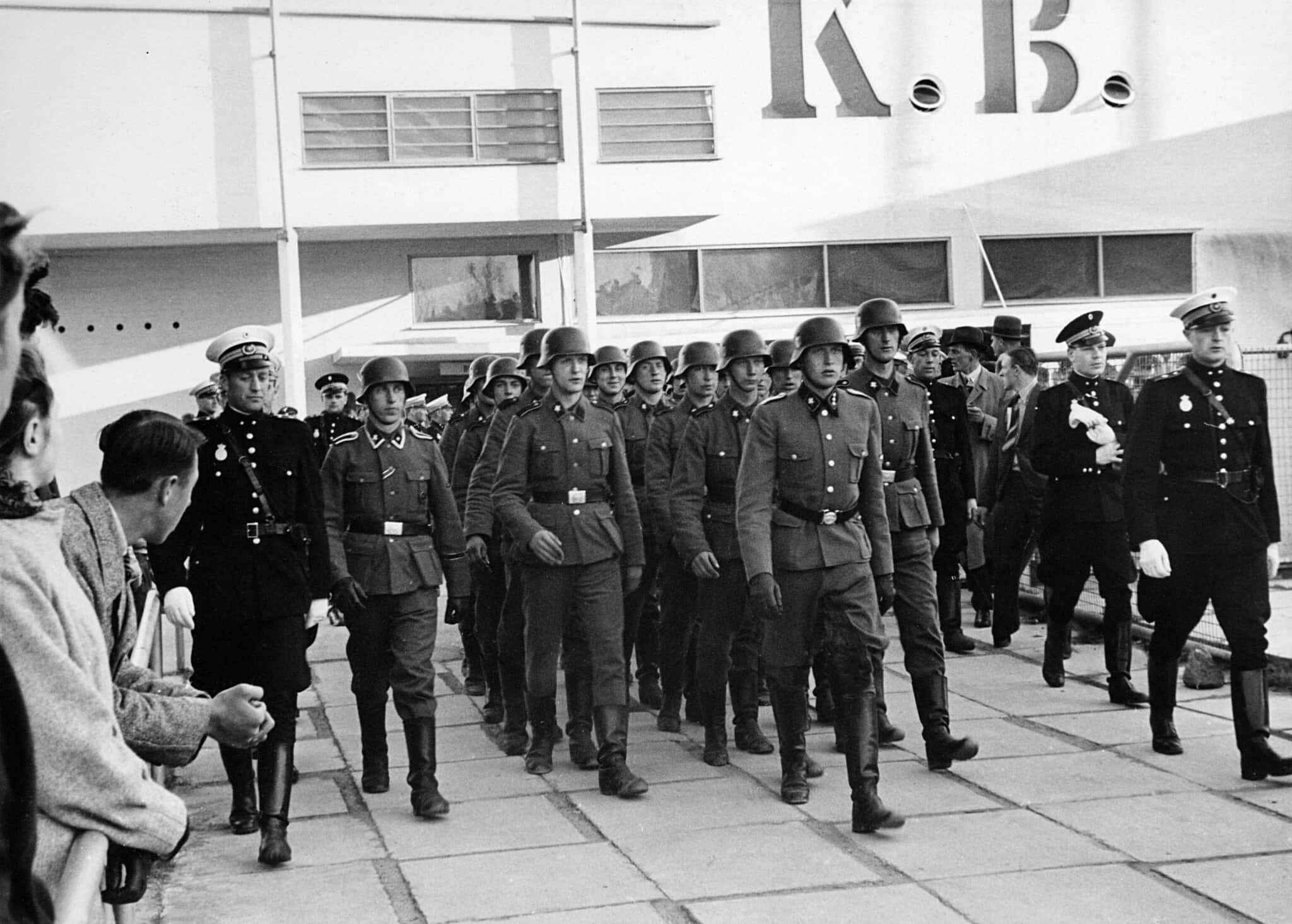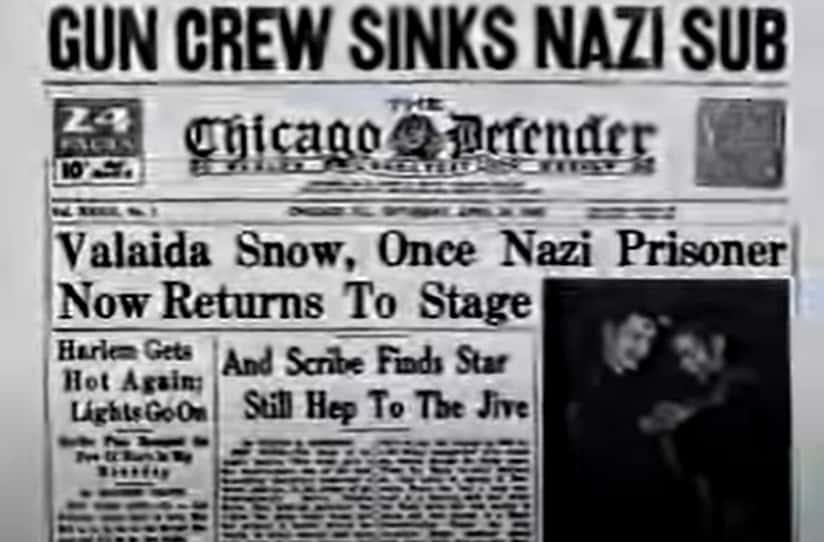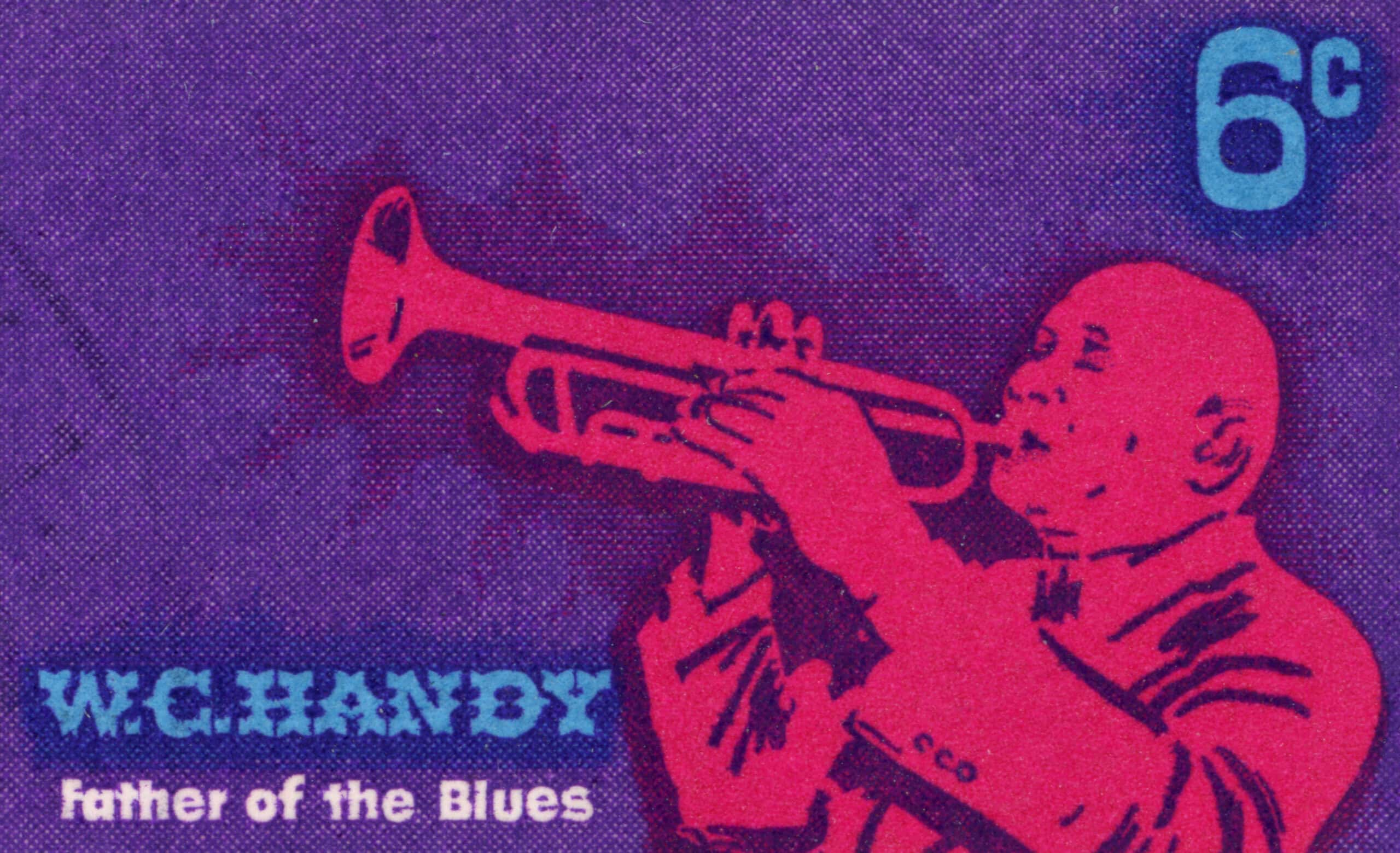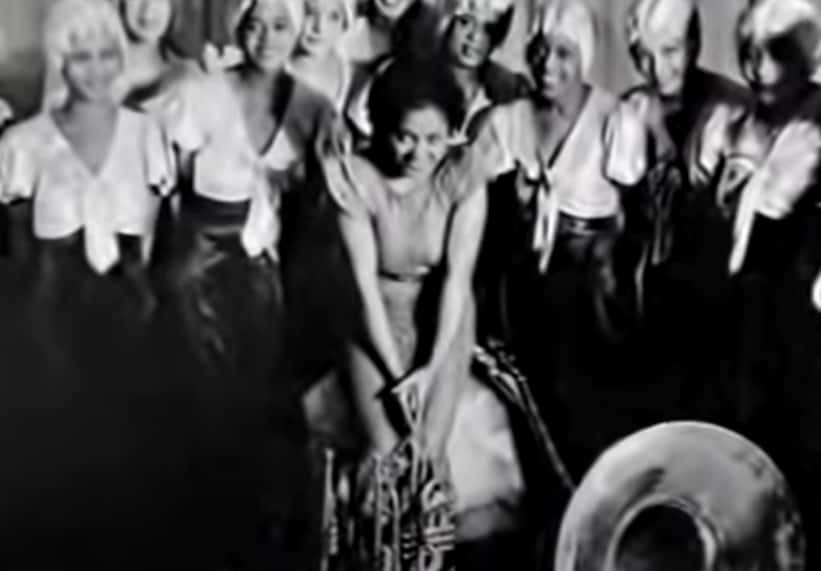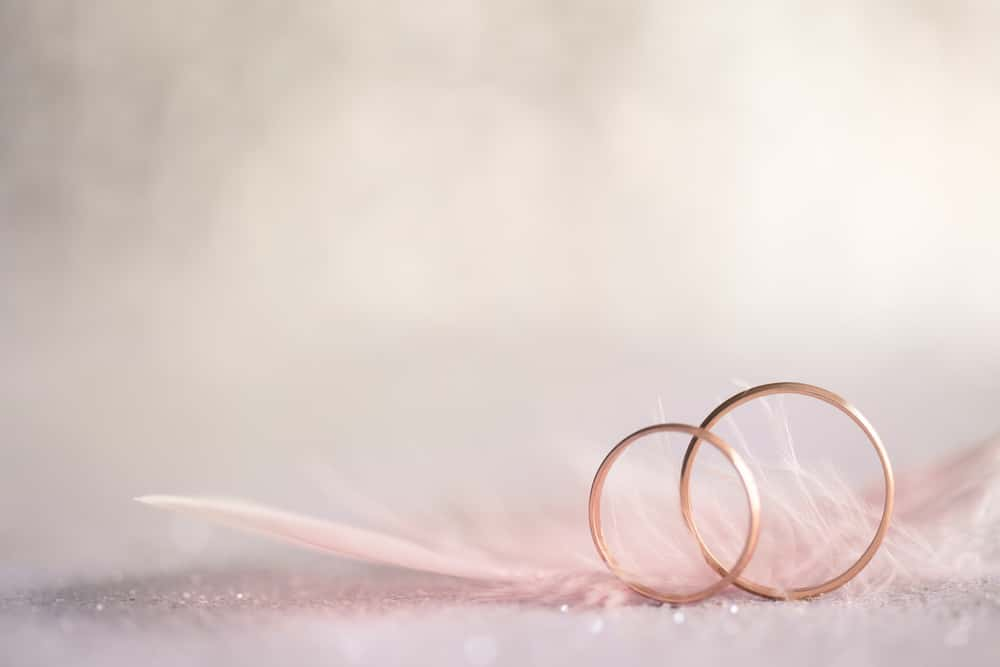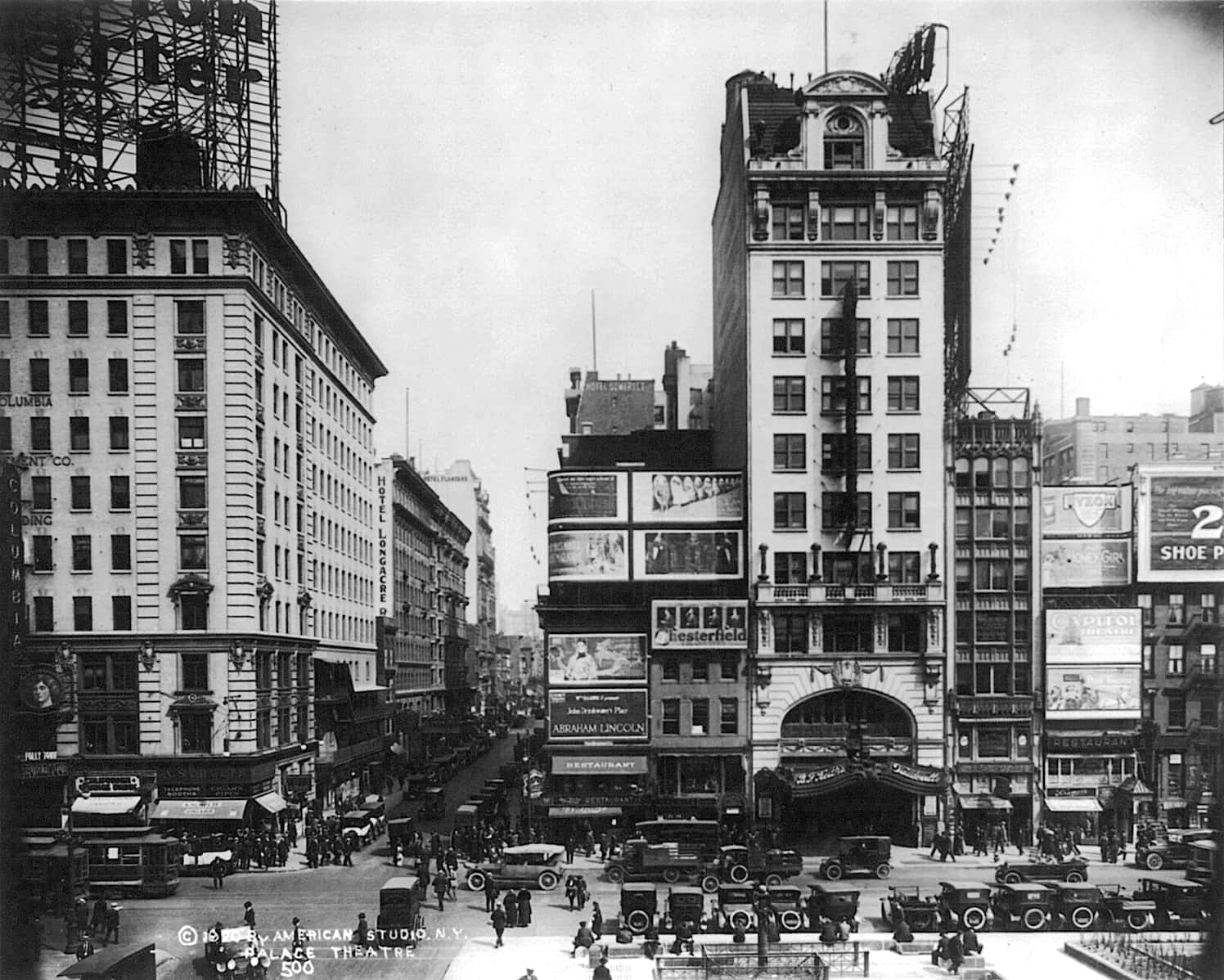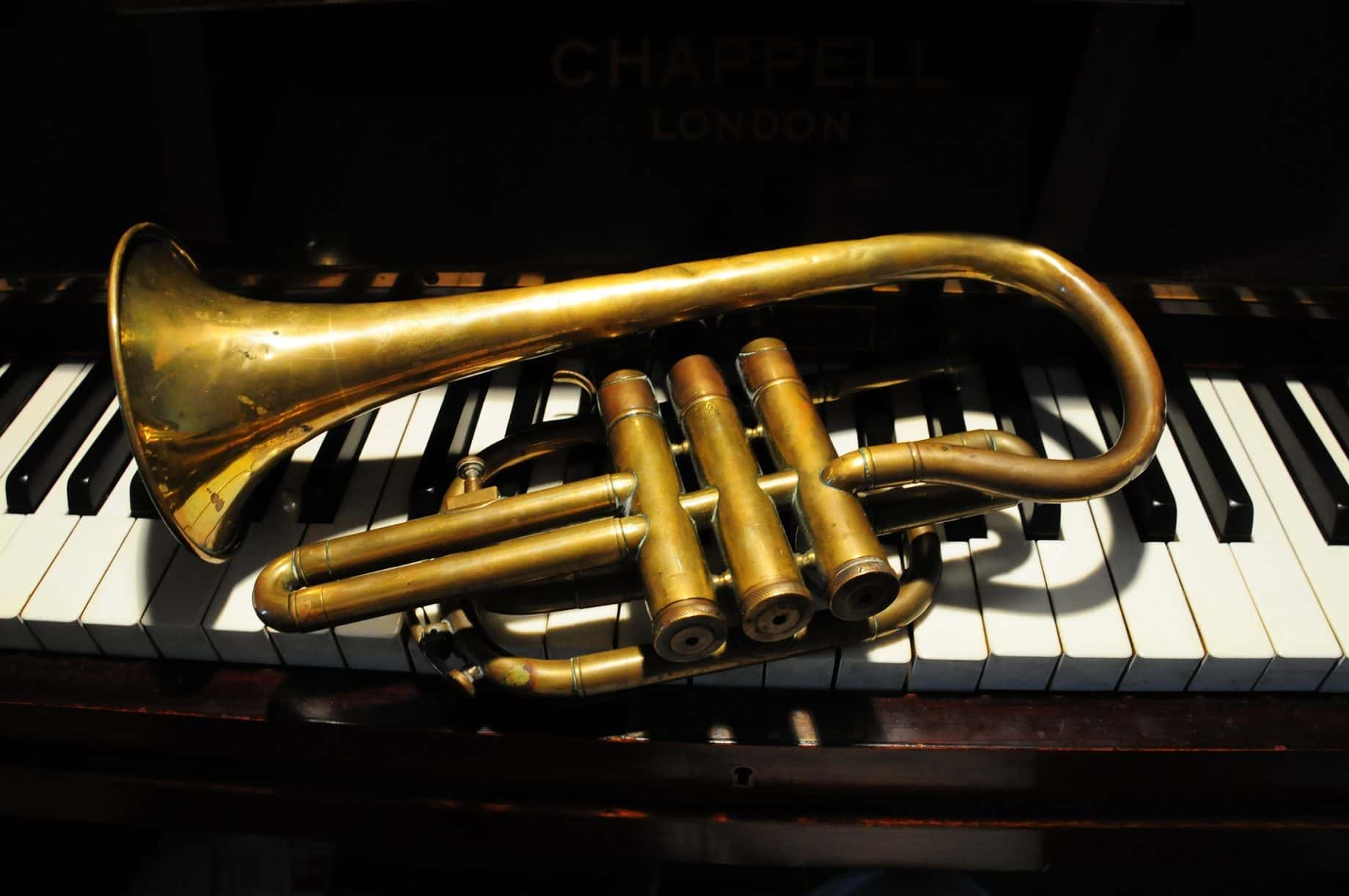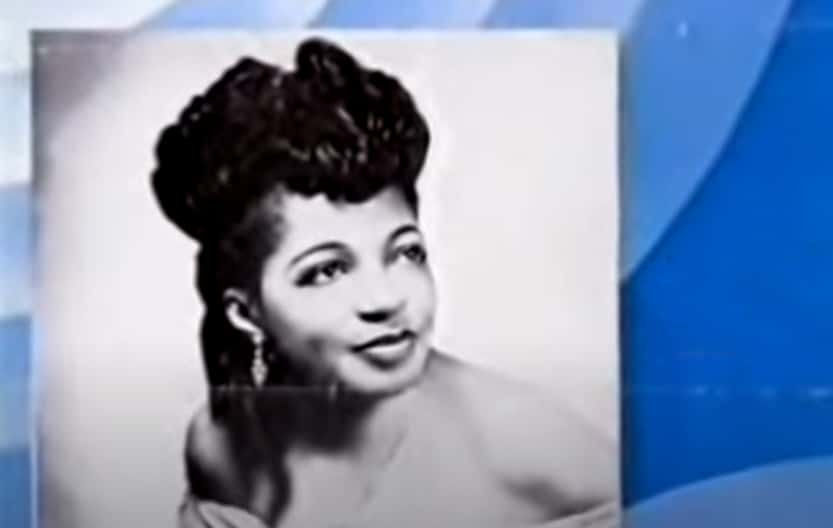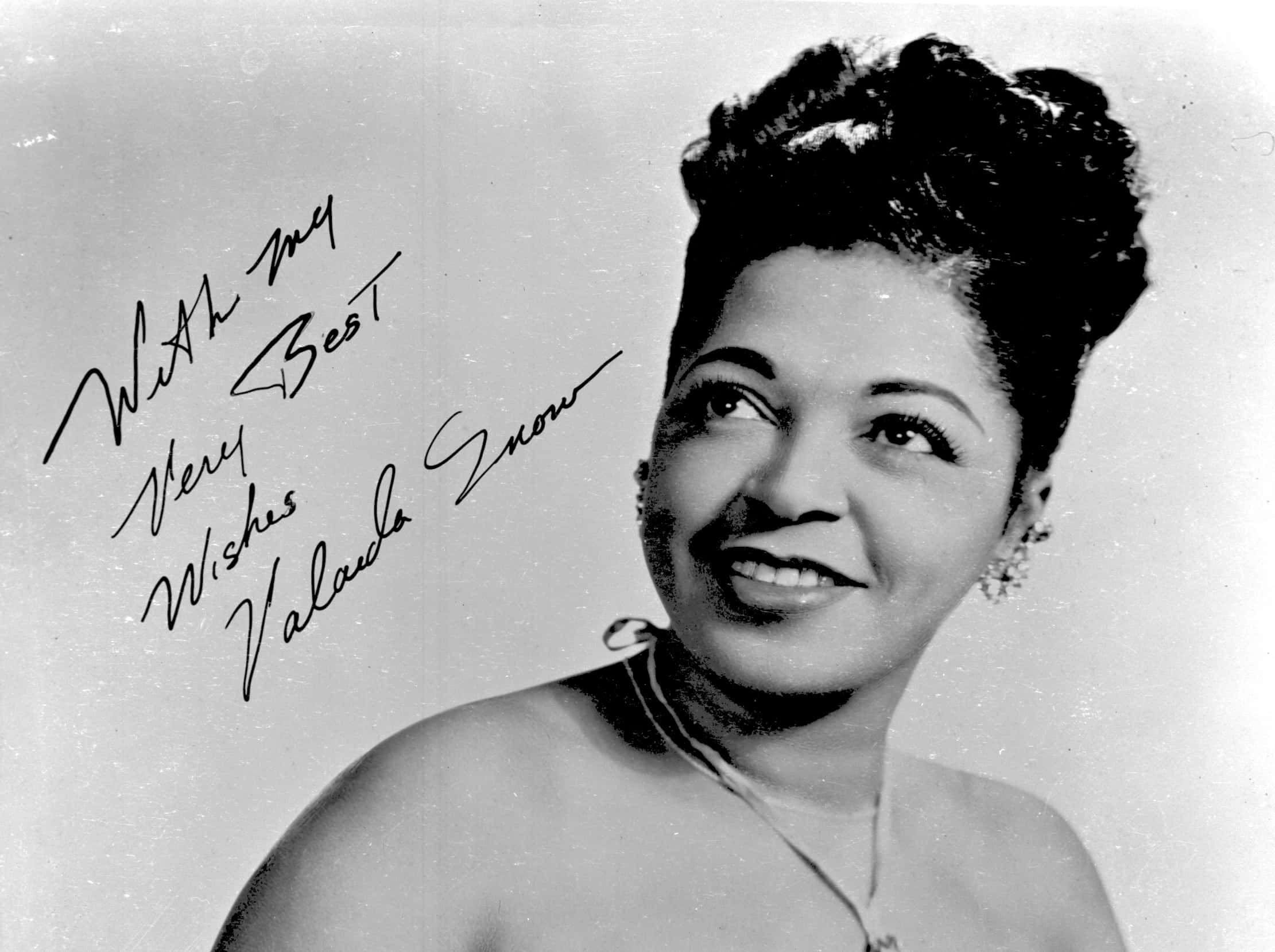She was one of the most gifted jazz musicians and performers of the 20th century. Her talent was just as immense as Louis Armstrong and Duke Ellington. So why have so few people heard of Valaida Snow? Though this female phenom toured the globe, discrimination ultimately landed her in WW2 Europe. The experience permanently traumatized an already troubled soul. The incredible life of Valaida Snow may have you adding her music to your playlist.
Valaida Snow Facts
1. She Grew Up in a Musical Home
Valaida's childhood home was full of music. Her mother Etta taught the Snow kids to play all kinds of instruments and sing. Meanwhile, Snow's father, JV, put together a group of child performers called the Pickaninny Troubadours. The group performed at vaudeville stages across the South. In other words, it was only a matter of time until Valaida entered show business.
2. She Was A Child Star
Snow performed publicly at the tender age of just four years old. By the time she was five, Valaida was the star of the Pickaninny Troubadours, playing violin and singing. Then, at 15, the young star could play cello, bass, violin, mandolin, banjo, saxophone, trumpet, clarinet, accordion and harp. Clearly, the little virtuoso had talent to spare, with the public calling her “Valaida the Great." Snow was ready to climb to the top but sadly, before she got there, she'd have to endure a personal tragedy.
3. She Experienced Loss Early in Life
While Valaida was still in her formative teen years, she suffered a terrible loss when her father passed away. With JV Snow's demise, Valaida didn't just lose her dad. She also lost her most precious musical mentor. Once JV breathed his last, no one stepped in to run the vaudeville troupe where Valaida was developing her young talent. Now, she was on her own in the world of show business. As though that wasn't hard enough, because Valaida was a Black woman, the odds of success were stacked high against her.
4. Her Marriage Was a Disaster
Losing her father was incredibly difficult for Valaida, with some music critics arguing that it may have led Snow to her first ill-fated marriage. At just 15 years old, Snow walked down the aisle with Samuel Lewis Lanier. On paper, the couple was a good match since Lanier was also in the entertainment business. But behind closed doors, he was not the kind of man any woman should be with.
5. Her Husband Was Cruel
In a terrible twist, it turned out that Valaida's first husband was physically abusive. Fortunately, Valaida found a way to leave him. The way their marriage ended, however, would come back to haunt Snow later in life.
6. She Was A Teen Drifter
At just 17 years old, Valaida was both fatherless and estranged from her cruel husband. This kind of emotional turmoil that would be difficult for anyone, let alone a teenager. But Valaida managed her pain as well as she could. She spent months working in the entertainment world, moving from one gig to another. For the time being, her considerable talent went unnoticed, but things were about to change…
7. Trumpet was the Ticket
In 1921, Snow's fortunes changed for the better when she booked a part in the popular revue “Holiday in Dixieland.” While on tour for the show, Snow went to cities like New York for the first time. The show’s pianist recalls how Valaida would dance at the end of the chorus line, but then jump out into the spotlight and stop the show with her extraordinary trumpet playing. With this kind of showmanship, people finally started to notice Snow's undeniable talent. Or they did before her career derailed...
8. She Starred In a Flop
In the early twenties, Eubie Blake and Noble Sissle created the smash-hit musical Shuffle Along. In the years after its debut, the public eagerly awaited a follow-up. It finally came in 1924 and luckily, Valaida Snow snagged a role in the sure-fire hit. There was just one problem: The sequel was a complete flop. The Chocolate Dandies got terrible reviews and closed soon after it opened.
However, even in reviews that slammed the show, writers praised Snow and her co-star Josephine Baker. If she could stand out in something as messy as The Chocolate Dandies, it seemed a life of fame and fortune wasn’t far away.
9. She Should Have Left
After The Chocolate Dandies, Snow and the iconic Josephine Baker would remain friends for many years. Their connection is part of why, when Baker gained superstardom in Europe, Snow eventually followed. In time, she too abandoned the US for international venues. However, once Snow arrived in Europe, Baker urged her to leave—a warning that Snow did not heed, to her own peril.

Sign up to our newsletter.
History’s most fascinating stories and darkest secrets, delivered to your inbox daily. Making distraction rewarding since 2017.
10. She Walked A Hard Road
Snow endured criticisms and put-downs from her male peers, but she had the ability and charisma to turn those snide remarks around. Over time, Snow befriended her once-judgmental colleagues. In the years to come, the people who put her down transformed into her most passionate defenders. In a twist on "If you can't beat 'em, join 'em," Valaida beat her foes, and then they joined her.
11. She Got Compared To An Icon
Despite mastering many instruments, the trumpet was to be Snow’s raison d’etre. She became so famous on the horn that people began to call her “Little Louis” after the great Louis Armstrong. Armstrong himself agreed that Snow was the world’s second-greatest jazz trumpet player in the world (besides himself). But the complimentary comparisons had a downside…
12. She Played In His Shadow
Despite accolades and growing fame and popularity, a glass ceiling developed over this female jazz musician. The public viewed her as a curiosity or a novelty, rather than a musical genius. Yes, fans compared her to the great Louis Armstrong, but this meant that Valaida had to play in his shadow. Critics said she had a “distinctly Armstongian style” and that she “mimicked '' his music. With these kinds of preconceived ideas, it was even harder for Snow to make her mark.
13. She Wowed The Crowd
Valaida Snow’s 1928 performance at Chicago's Sunset Café is the stuff of music legend. She played trumpet and sang, but she brought the house down with an utterly unique dance. Snow lined up seven different pairs of shoes on the stage and then danced in each while she sang a song. They were soft-shoes, adagio shoes, tap shoes, Dutch clogs, Chinese straw sandals, Turkish slippers, and the last pair, perhaps an homage to her late father, Russian boots. The crowd went wild for her versatility and skill. And one audience member, in particular, took notice…
14. She Had A Famous Fan
In the audience, that night at the Sunset Café was none other than Louis Armstrong himself! Armstrong was so enthralled with Snow’s playing, singing and dancing, that he continued to applaud long after the rest of the audience had finished clapping. At the end of her performance, the iconic trumpeter declared, “Boy, I never saw anything that great!” However, Snow had an even more important admirer in the crowd that night too...
15. She Had a Liaison With a Legend
During her time at the Sunset Café Snow befriended and eventually became intimate with Earl Hines, himself a legendary jazz pianist. Hines shaped the future of jazz piano—and even became Louis Armstrong’s pianist. Sadly, the connection between Hines and Snow wouldn’t last. Snow was committed to her career, and it was leading her far away from the clubs of Chicago and New York.
16. She Got Her Big Break
In 1931, Snow got a part in the New York musical Rhapsody in Black. Well, actually, "got a part" is putting it lightly. Producers created the musical purely to showcase Snow’s incredible talents. Unsurprisingly, the musical was a major hit, running for 80 shows between May and July. However, the production had a dark side, especially for poor Valaida.
17. She Had a Famous Rival
Even though Rhapsody in Black was written specifically for Snow, one of her co-stars got the honor of seeing her name in lights. The blues singer and actress Ethel Waters was more famous than Snow, but less talented, so it stung when Snow had to walk to the theater and see an inferior performer's name outranking her own. However, Snow would get her revenge...
18. She Made An Enemy
After the end of the musical, the audience decided whose name should lead the production. Going by the strength of their applause, their choice was clear: It was Valaida every time. Snow repeatedly got more adoration from the audience than Waters. These repeated snubs bruised Waters’ ego and in time, fuelled a long-standing rivalry between the two performers.
19. She Received No Credit
Even off stage, Rhapsody in Black was already a dramatic production. But things got even messier when Snow received a cruel insult from the musical's advertising department. Even though Snow directed the huge band of 60 people, she was shocked to see the credit for all her hard work go to someone else. The band was billed as Pike Davis’s Continental Orchestra. For Snow, this was the last straw. She would branch out on her own and garner the stardom she deserved.
20. She Married a Younger Man
She was 30. He was 19. Scandal was imminent. In the mid-1930s Snow eloped with Ananias Berry, who himself was from a musical family known as the Berry Brothers. It was a scandalous union. During their marriage, they starred in some movies and toured together. However, Snow’s new mother and father in-law were to become a problem.
21. In-Laws Sabotaged Her Marriage
The fact that their son had gone off and married a much older, flamboyant entertainer mortified Berry’s family, and they publicly shamed Snow whenever they could. But there was an even darker side to this story. According to rumors, Ananias’s father was also romantically interested in Snow. When Snow picked the son instead, he became intent on breaking up the union.
Little did Snow know, her father-in-law wasn't even the real threat. A ghost from her past would soon destroy her new romance.
22. Her Voice Was Unique
Most of the famous female black jazz and blues singers of Valaida's day had sultry, smoky, deep tones (like Billie Holiday, Ella Fitzgerald, and Sarah Vaughan). On the other hand, Snow’s voice was high and nasal. For someone else, that could be a weakness, but Snow wisely used her distinctive voice as a way to set herself apart from her female peers.
23. She Was Accused of Bigamy
Remember Samuel Lewis Lanier, Snow's abusive first husband from when she was just 15 years old? Well, he didn't like that his wife was getting married again. Lanier took Valaida to court and charged her with a jaw-dropping accusation: Bigamy. Seeming more than a little bitter about his ex's success, Lanier claimed that their marriage had never been legally annulled. And if Snow was still Lanier's wife, she couldn't very well go around marrying other men, now could she?
24. Her Marriage Suffered
Even though the court acquitted Snow of all charges, the damage was done. Combined with the public outcry over Snow and Ananias's massive age difference, Ananias's father's own, ahem, issues with Snow, and the controversy over Snow's old flame Lanier, and everything was just too stressful for Snow's new marriage to survive. After the trial, she and Ananias parted ways.
25. She Never Found Her Place Stateside
Valaida's personal life wasn't going great. But at least her career was...sadly also not going great. Being a black woman proved to be a barrier to Snow’s success. While her male contemporaries found lucrative, long-term gigs at theatres and clubs in places like Chicago and New York, Snow never got the same perks. Ever the trooper, she made things work. The female virtuoso toured relentlessly and became known as the hardest working woman in show business.
26. She Ditched the US
During the late 1930s, Snow was mainly touring Europe, following in the footsteps of friend Josephine Baker. Snow herself finally hit her stride there, enjoying her most successful years in London and Paris. While there, she wrote the famous tune “High Hat, Trumpet, and Rhythm" and enjoyed enormous fame. During these happy times, Snow was so popular that the Queen of the Netherlands gave her a gold-plated trumpet.
27. She Had An Outrageous Side
Snow lived an extravagant lifestyle during her European heyday, riding in orchid colored convertibles with a chauffeur and a servant. She also had a strange pet: a monkey! And if that wasn’t lavish enough, Snow also made all three members of her entourage (her chauffeur, her servant, and of course, her monkey) all dress alike. They wore orchid-colored clothes to match Snow's convertible. It's safe to say that Snow was living the high life, but the good times wouldn't last.
28. She Struggled
Many famous singers and artist struggle with drug dependency issues, and sadly Valaida Snow was no different. During her greatest periods of success, the multi-talented artist was also struggling with her darkest personal lows. Snow was desperately addicted to the painkiller Oxycodone.
29. Dark Forces Invaded
In 1941, during Snow's Europe tour, she performed in a string of Copenhagen clubs. However, the concerts turned out to be incredibly dangerous. Earlier, Snow's good friend Josephine Baker had warned her to leave Europe as fast as possible. German forces were preparing to invade and if they stormed Copenhagen when Snow was there, no one could guarantee Valaida's safety. Unfortunately, Snow ignored her friend's warning.
30. Her Gifts Were Extraordinary
Snow didn't just have perfect pitch. She had the rare ability to write out music in real-time as she heard it. Valaida could reproduce phrases and songs note-for-note after just one hearing.
31. She Was Captured
Soon enough, Valaida was swept up in the perils of WW2. The Germans did exactly as Baker said they would, invading Copenhagen and spreading panic and terror throughout the city. In the chaos, Snow couldn't make her way out of the city. Instead, after Valaida was captured by the Germans, the talented performer tragically ended up behind bars.
32. She Spent More Than a Year as a POW
Valaida Snow went from a globe-trotting superstar to a defeated captive in just eighteen months. We have very little information about this devastating time in Snow's life, but we do know that these months were the darkest time of Snow's entire life.
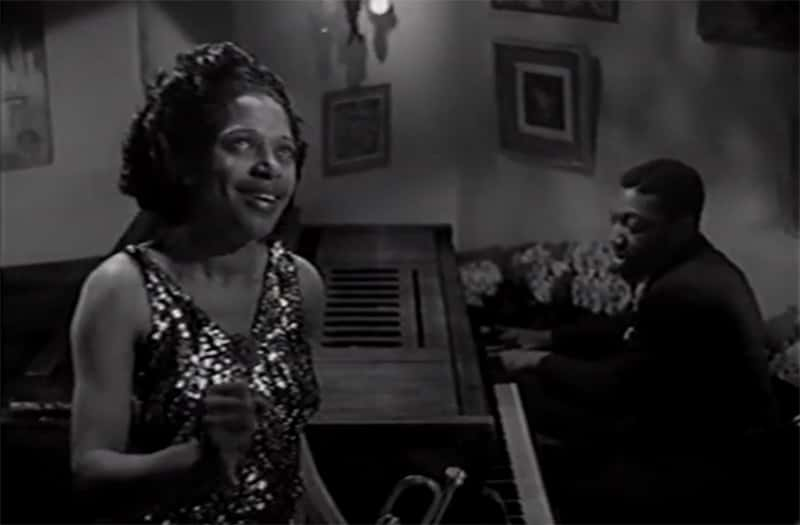 Personal Column (1939), Speva Films
Personal Column (1939), Speva Films
33. She Was Never the Same
Thankfully, in the spring of 1942, Snow finally left Europe. However, her escape is full of strange details. For example, Snow boarded a ship designated for American refugees and foreign diplomats. So how exactly did Snow, who was imprisoned behind enemy lines, manage to get on the vessel? Most sources say her freedom was part of a negotiated prisoner exchange, but there were rumors of a darker alternative.
34. She Had a Secret Tryst
Some sources claim that Valaida had a relationship with a Belgian law enforcement official during her time as a captive. He pulled some strings to get Snow aboard.
35. Her Captivity is Shrouded in Mystery
No matter how Snow got back to New York, when she arrived, she (and her horrific experiences in WW2) made front-page news in Black publications. According to Snow's managers, the Germans imprisoned Snow and subjected her to unfathomable punishments, including starvation and whipping. The chilling story gripped the public. However, as time passed, people began to ask questions about Snow's tale.
36. She Became Musical Royalty
W.C. Handy himself, now known as the Father of the Blues, dubbed Snow the "Queen of the Trumpet." The impressive moniker often appeared under her name on her records.
37. Mysteries Swirled
Over time, Snow’s story of internment at a concentration camp became more implausible. Facts and dates changed and the press started reporting that the story was simply made up. Historians now agree Copenhagen authorities took Snow in for petty theft and drug use. Valaida then spent time in a city slammer and a hospital. Instead of being imprisoned by the Germans, the Danes decided to keep her in custody to protect Snow from the invading forces.
38. There Were Lies Upon Lies
Author and researcher Jayna Brown later revealed that eight months after her arrest, Snow gave an interview to a provincial newspaper Randers Amtsavis. According to Brown, while Snow sipped coffee at a high-end Copenhagen hotel, the singer admitted that her stay in Copenhagen was comfortable. In fact, she chose to remain there of her own accord and was in no way imprisoned. However, this version of events didn't satisfy suspicious minds either, and for good reason.
39. Denmark Changed Her Forever
The story of her imprisonment may have been a publicity ploy, but something terrible must have happened to Valaida Snow in Europe during those 18 months. Whether it was her addictions, her incarceration, or how she was treated at the hands of her captors, when Snow returned to America she was a shell of her former self. Some said that when Snow got back to the US, she weighed less than 100 pounds.
40. A Former Lover Insulted Her
Snow still performed upon returning to American soil, with gigs in New York’s Apollo Theatre and other major venues, but it wasn’t the same. The spark was gone and her ability to wow and captivate audiences had vanished. Her former lover Earl Hines was in the audience for one show in 1943, and he remarked that he barely recognized the woman on the stage, the same woman he had been intimate with years before.
41. She Married Her Manager
Valaida Snow walked down the aisle for the third and final time in 1943. This time, her groom wasn't a cruel teenager or a scandalously younger man. Instead, it seems that Snow had a workplace romance. She tied the knot with Earle Edwards, who was a fellow musician and, because Snow seemingly couldn't marry an uncontroversial man, Snow’s own manager. No conflicts of interest here!
42. She Needed a Comeback
It seems that for Snow, the third time was the charm. She and Edwards had a stable marriage, with the couple moving to Los Angeles shortly after their wedding. Despite all Snow's challenges and her now-stalling career, Valaida still used her time and talent to mentor young jazz musicians in LA’s Central Avenue clubs. Thanks to Snow's involvement, the area transformed into an important jazz scene. Sadly, she wouldn't enjoy her achievement for long.
43. The Final Curtain Rose
May 30, 1956. New York City. Finally, after years of struggle, imprisonment, addictions, and cruel stereotypes, Valaida sees her own name in bright lights. On the marquee of the famed Palace Theater, "Valaida Snow" made her last stand. During the incredible performance, a shocking twist made the crowd gasp. While on stage, Snow suffered a massive brain hemorrhage. After being rushed from the stage, she breathed her last behind the thick velvet curtains. She was 51 years old.
44. Her Burial Was Heartbreaking
Three days later, Snow was buried in the place where she was born, Chattanooga Tennessee, in the Greenwood Cemetery. She was put to rest on June 2, 1956. Had she lived, the day would have marked Snow's 52nd birthday.
45. Her Legacy Went Up In Flames
Unfortunately, Snow’s recordings are few and far between, and often don’t capture the energy and wow-factor of her storied performances. All we have today are a few films and audio clips. The main reason for this scarcity was a massive 2008 fire at Universal Studios. The blaze destroyed Valaida's precious master recordings.
46. She Went Unsung
Even though Snow's status in the jazz and blues worlds was legendary, sadly, she never succeeded in the mainstream. It seemed that society had trouble accepting that a woman, and a Black woman at that, could be such a musical powerhouse. Black newspapers covered her every move, especially when she returned from Europe, but her only mention in the New York Times occurred on May 21, 1949 in a short, one-paragraph review at the bottom of the eighth page.
47. She Finally Got Her Due
Tragically, when Snow passed, the press barely mentioned the enormous loss that the musical world had just endured. But eventually, Snow would get the send off she truly deserved. In February of 2020, a whopping 64 years after Snow blew her last note, the New York Times ran a lengthy obituary that finally honored the one and only Valaida Snow.
48. Her Name Has An Unexpected Meaning
But wait. Just hust how does a little Tennessee girl end up being named "Valaida" in the first place? It's kind of a weird story. It turns out that Snow's father was obsessed with Russia. He named his first-born daughter "Valada" after the Russian city of Vladivostok. Later, Valaida added the “i” to help people pronounce her name correctly (val-AY’-dah).
49. Her Birth Is Mysterious
Here's a little quibble in Snow's obituary. To this day, it's hard to tell exactly how old she was because Valaida Snow's birthday is still a mystery. People estimate her birth as occurring anywhere 1900–09, with most agreeing on the year of 1904.
50. Remember Her Name
Decades after her life, Valaida Snow is slowly getting the respect she so deserved when she was alive. Authors of black and music history are discovering this rare talent, and digging deeper into her life and her music, realizing she was so much more than “Little Louis.” She bravely fought discrimination, drug addiction and abusive relationships and forged a musical career any way she could. Valaida Snow may have ranked right up there with Armstrong, Count Basie, and Duke Ellington if it weren’t for a twist of fate and bad timing that silenced this charismatic performer forever.
Sources: 1, 2, 3, 4, 5, 6, 7, 8, 9, 10, 11, 12, 13, 14, 15, 16, 17, 18, 19, 20, 21, 22, 23, 24, 25, 26, 27, 28, 29, 30, 31, 32, 33, 34, 35, 36, 37, 38, 39, 40, 41, 42, 43, 44, 45, 46, 47, 48, 49

